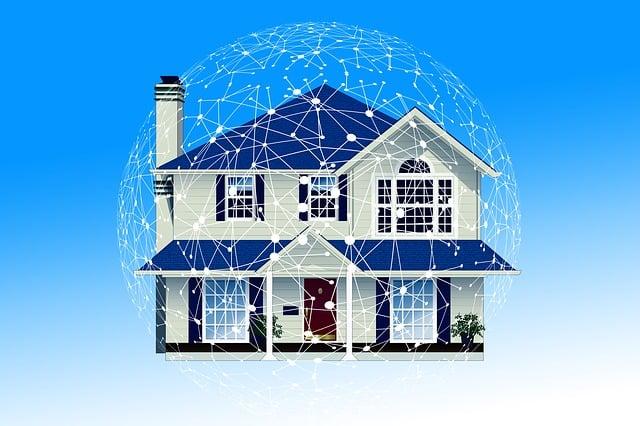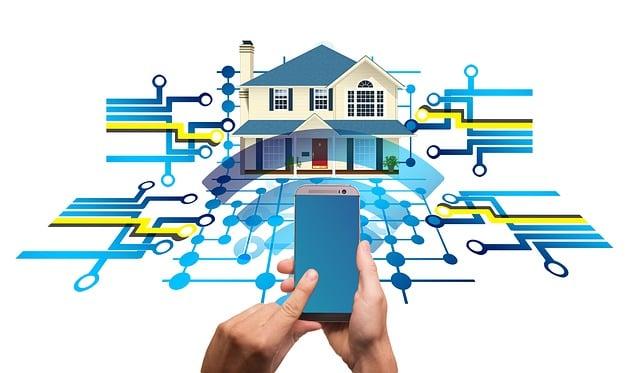INDEX
- Introduction
- Evolution of Smart Home Tech
- Benefits of Smart Home Technology
- Enhanced Security Features
- Automation and Convenience
- Integration with IoT Devices
- Conclusion
- FAQs
- References
INTRODUCTION
Smart home technology has rapidly evolved in recent years, transforming the way we live and interact with our living spaces. From innovative devices to sophisticated automation systems, smart homes offer convenience, security, and energy efficiency like never before. This article explores the evolution of smart home tech and its myriad benefits for homeowners.
EVOLUTION OF SMART HOME TECH
In the past, smart home technology was limited to basic automation features such as programmable thermostats and remote-controlled lighting. However, advancements in artificial intelligence (AI), machine learning, and the Internet of Things (IoT) have propelled smart home devices to new heights. Today, homeowners can enjoy a wide range of connected devices that seamlessly integrate with each other to create a truly smart ecosystem.
From smart speakers and voice-activated assistants to intelligent appliances and security cameras, the options for enhancing a home with smart technology are virtually limitless. These devices not only offer convenience but also enable homeowners to monitor and control their homes remotely through smartphone apps or voice commands.

(Image: Pixabay/@fancycrave1)
BENEFITS OF SMART HOME TECHNOLOGY
The integration of smart home technology offers numerous benefits to homeowners. One of the key advantages is increased energy efficiency, as smart devices can regulate heating, lighting, and other systems based on occupancy or user preferences, resulting in lower utility bills and reduced environmental impact.
Furthermore, smart home systems provide enhanced comfort and convenience by automating routine tasks and allowing for personalized settings tailored to individual preferences. For example, smart thermostats can adjust temperatures automatically for optimal comfort, while smart lighting systems can create ambiance and save energy by dimming or switching off lights when not needed.
In addition, smart home technology can improve home security through features like motion sensors, smart doorbells, and surveillance cameras that provide real-time monitoring and alerts. This added layer of security offers peace of mind to homeowners, knowing that they can keep tabs on their property even when they are away.
ENHANCED SECURITY FEATURES
Smart home technology has revolutionized home security by offering advanced features that go beyond traditional alarm systems. Security cameras equipped with AI capabilities can detect and alert homeowners to unusual activity, while smart locks can provide keyless entry with customizable access codes.
Moreover, integrated security systems can coordinate various devices to create a comprehensive security network that includes smoke detectors, water leak sensors, and even smart blinds that can mimic occupancy patterns to deter potential intruders. By combining these elements, smart home technology helps homeowners safeguard their properties and loved ones effectively.

(Image: Pixabay/@geralt)
AUTOMATION AND CONVENIENCE
One of the most appealing aspects of smart home technology is automation, which simplifies daily tasks and routines. For instance, automated routines can be set up to adjust lighting, temperature, and music preferences at different times of the day, creating a comfortable and personalized living environment.
Additionally, smart devices can communicate with each other to streamline processes and enhance convenience. For example, a smart refrigerator can create shopping lists based on inventory levels, which can then be accessed through a smartphone while at the store. Such automation not only saves time but also reduces manual effort in managing household chores.
INTEGRATION WITH IOT DEVICES
Smart home technology is increasingly becoming integrated with other IoT devices, expanding the possibilities for connectivity and functionality within homes. By connecting smart hubs, sensors, and appliances, homeowners can create a seamless network that responds intelligently to their needs and preferences.
This interconnected ecosystem allows for cross-device communication, enabling devices to work together harmoniously to enhance the overall living experience. For example, a smart home heating system can adjust temperatures based on data from motion sensors and weather forecasts, creating a comfortable and energy-efficient environment without manual intervention.
CONCLUSION
As smart home technology continues to evolve, it promises to bring greater convenience, efficiency, and security to homeowners worldwide. By embracing the latest advancements in AI, IoT, and automation, homeowners can transform their living spaces into smart, connected environments that cater to their individual lifestyle preferences.
FAQs
How secure is smart home technology?
Modern smart home devices come equipped with robust security features, including encryption protocols and regular software updates to protect against potential vulnerabilities. It is essential for homeowners to follow best practices such as using strong passwords and implementing multi-factor authentication to enhance the security of their smart home systems.
Can smart home devices save energy?
Yes, smart home devices are designed to optimize energy consumption by monitoring usage patterns and adjusting settings accordingly. By regulating heating, cooling, lighting, and other systems based on occupancy and preferences, smart devices can contribute to significant energy savings over time.

